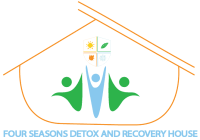In the journey of addiction recovery, there is a stage known as the “pink cloud,” a phenomenon that brings both hope and potential challenges. This phase, often referred to as Pink Cloud Syndrome, is characterized by feelings of euphoria, extreme happiness, and a positive outlook on sobriety. However, it’s essential to understand the meaning, signs, timeline, benefits, downsides, and tips to navigate this phase effectively. In this comprehensive guide, we will delve into the concept of the pink cloud, its impact on recovery, and how to make the most of this unique stage.
What is the Pink Cloud?
Pink clouding, also known as Pink Cloud Syndrome, represents a stage in early addiction recovery where individuals experience intense feelings of euphoria, elation, and optimism. It can be likened to a honeymoon phase, where individuals are filled with confidence and excitement about their recovery journey. Cyndi Turner, LCSW, LSATP, MAC, the co-founder and clinical director of Insight Into Action Therapy in Virginia, describes the pink cloud phase as a time when individuals feel on top of the world, hopeful, and positive about their ability to maintain sobriety.
However, it’s essential to recognize that the pink cloud phase is not permanent and eventually comes to an end. Exiting this phase can sometimes have a negative impact on one’s recovery journey.
Signs of Pink Clouding
If you’ve recently started your recovery process and are feeling exceptionally great, there’s a good chance you’re experiencing pink clouding. This phase often occurs after individuals have gone through the challenging withdrawal process, which involves significant physical and emotional distress. Suddenly, you begin to feel a remarkable sense of joy and optimism, appreciating the beauty in life and looking forward to each day with enthusiasm.
While pink clouding may manifest differently for each person, common signs and experiences include:
- Feelings of euphoria and extreme joy
- A hopeful outlook on life
- Positivity and optimism about recovery
- A calm or peaceful state of mind
- Confidence in maintaining sobriety
- Preoccupation with the positive aspects of recovery
- Commitment to positive lifestyle changes
- Increased emotional awareness
- Overlooking the challenges of maintaining sobriety
Timeline of Pink Clouding
The duration of pink clouding can vary significantly from person to person. Some individuals may experience the effects within days of starting their recovery journey, while others may encounter it a few weeks in. Similarly, the duration of the pink cloud phase is inconsistent. While some individuals may experience it for a few weeks, others may find that the effects last for several months.
Benefits of Pink Clouding
Addiction can cause immense distress in various aspects of life, including relationships and emotional well-being. It can also numb and mute one’s emotional experiences, making it challenging to find enjoyment in anything. The pink cloud phase offers a much-needed perspective shift. For individuals who haven’t felt optimistic or excited about life in a long time, the pink cloud stage can be an enticing vision of what life can look like in recovery.
During this phase, individuals also reconnect with their emotions, experiencing hope, joy, and excitement once again. This exhilarating experience can strengthen their commitment to sobriety and provide the motivation needed to continue on their recovery journey.
Downsides of Pink Clouding
While the euphoria of the pink cloud phase can be incredibly uplifting, it can also lead individuals to overlook the realities of recovery. It’s crucial to recognize that the pink cloud stage is not sustainable, and the hard work required for long-term sobriety becomes more apparent as this phase comes to an end. Cyndi Turner explains that recovery demands effort every day to implement a balanced lifestyle, utilize coping skills, repair relationships, and plan for the future. Therefore, indulging in unrealistic expectations during the pink cloud phase can set individuals up for potential relapse.
As individuals transition out of the pink cloud stage, they must reintegrate into daily life responsibilities. This includes going to work, managing household responsibilities, and interacting with loved ones. Adjusting to these responsibilities can seem overwhelming, potentially leading individuals to question the purpose of their sobriety and making it easier to fall back into old habits. It’s important to note that many people relapse within the first 90 days of abstinence, often due to unrealistic expectations or feeling overwhelmed by the challenges of maintaining sobriety.
Making the Most of the Pink Cloud Phase
While the pink cloud phase is temporary, it doesn’t have to end with a drastic low. By understanding the nature of this phase and adopting certain strategies, individuals can make the most of the pink cloud stage and set themselves up for long-term success in recovery.
1. Inform Yourself
During the pink cloud phase, when you’re feeling good and optimistic, it’s an opportune time to learn more about addiction recovery. Educate yourself about the steps and typical phases of recovery. This knowledge can help you prepare for the challenges that lie ahead and equip you with strategies to handle future urges or setbacks. Additionally, consider seeking guidance from a mental health professional who specializes in addiction treatment to develop a personalized plan for your recovery journey.
2. Carry the Positive Feelings with You
Although the pink cloud phase is temporary, you can still hold on to the positive emotions and experiences it brings. Consider keeping a journal during this period to capture your thoughts and feelings. This journal can serve as a source of inspiration and motivation during challenging times in the future. When you find yourself facing difficulties, refer back to your journal and remind yourself of the hope and optimism you felt during the pink cloud phase.
3. Focus on Small, Manageable Goals
While it’s tempting to make sweeping changes during the pink cloud phase, it’s important to maintain balance and avoid overwhelming yourself. Instead of taking on multiple goals or habits simultaneously, focus on one or two changes that you genuinely want to make. By setting realistic and achievable goals, you increase your chances of success and avoid potential disappointment or burnout.
4. Get Extra Support
Consider seeking additional support during the pink cloud phase to ensure a smooth transition into the next stage of recovery. While 12-step programs like Alcoholics Anonymous (AA) are well-known, they are not the only approach to addiction recovery. Explore therapy options and find a therapist who specializes in addiction treatment. Working with a therapist can provide you with the necessary tools to address any underlying challenges and maintain your sobriety. Additionally, connecting with others who are going through a similar process can provide valuable insight and support. Look for local support groups or online communities where you can share your experiences and learn from others.
5. Prioritize Self-Care
Self-care plays a crucial role in maintaining long-term sobriety. Take care of your physical and mental well-being by practicing healthy habits such as balanced nutrition, regular exercise, and adequate sleep. Additionally, engage in activities that help you relax and reduce stress. Whether it’s pursuing hobbies or spending quality time with loved ones, prioritize activities that bring you joy and support your overall well-being. Remember, recovery is not just about abstaining from substances but also about building a fulfilling and meaningful life.
Conclusion
The pink cloud phase of recovery can be a transformative and inspiring time filled with hope and optimism. While it may not last forever, individuals can harness the power of this phase to strengthen their commitment to sobriety and prepare themselves for the challenges ahead. By staying informed, carrying the positive feelings, setting realistic goals, seeking support, and prioritizing self-care, individuals can navigate the pink cloud phase and lay the foundation for a successful recovery journey.
If you or someone you know is struggling with addiction, consider applying for 4 Seasons Detox recovery programs. Our dedicated team is committed to providing comprehensive and personalized support throughout every stage of the recovery process. Remember, you are not alone, and there is hope for a brighter future.



